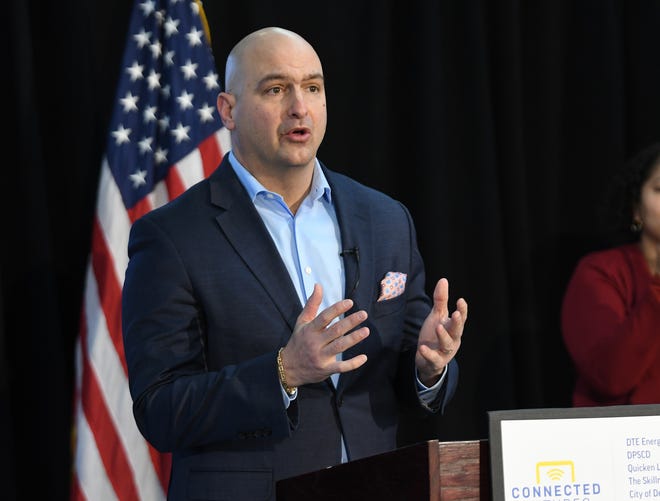More than half of the Detroit public school students assessed in a mental health survey said they experienced symptoms of anxiety or depression and 23% seriously considered attempting suicide before the pandemic, according to a new report.
Of 11,000 Detroit Public Schools Community District students who responded to a mental health assessment by the district in collaboration with a school mental-health program designed by the University of Michigan, 31% reported thoughts of suicide or self-harm , 56% reported symptoms of anxiety and 62% reported symptoms of depression.
The needs assessment was done between mid-2019 and early 2020 for students in grades 8-12 as the first step in a multi-year partnership between UM and and the school district that focuses on student mental health.
The assessment found girls had higher rates of depression and anxiety than boys and students who identify as gender nonbinary, transgender or LGBTQIA+ had higher rates of mental health difficulties. Academic stress was the top mental health concern identified by students, followed by anxiety, depression and family stress, the report found.

Researchers said results from the needs assessment show Detroit students may experience unique mental health vulnerabilities. Many of those surveyed had experienced trauma and significant mental health concerns including suicidal ideation — the act of thinking about, considering or planning suicide.
Students with depression, anxiety and exposure to trauma were more likely to report chronic absenteeism and difficulties completing schoolwork or studying, the report found.
Surveys were completed by more than 11,000 Detroit students, nearly 3,500 staff and 800 families.
The UM program, TRAILS (Transforming Research into Action to Improve the Lives of Students), is a school mental health program designed by UM to increase youth access to mental health services.
The assessments were also done by the UM Youth Policy Lab, a partnership between the Ford School of Public Policy and the Survey Research Center at the Institute for Social Research.
Robin Jacob, co-director of the Youth Policy Lab, said the findings show students were experiencing high levels of need around mental health even before COVID-19.
“Given the disproportionate impact of the pandemic on communities of color, the need for mental health support for Detroit students is even greater now,” Jacob said. “The district’s focus on mental health is key as students navigate their mental health needs related to the twin pandemics of COVID and systemic racism.”
The assessment showed a substantial number of students with symptoms of anxiety and/or depression reported not having ever accessed any school- or community-based mental health support services.
The most common barriers to seeking mental health services cited included a preference for coping with difficulties on their own, a belief that available services would not be helpful, and embarrassment/shame/stigma, the report said.
Detroit Superintendent Nikolai Vitti said the assessment provides an unprecedented view of the well-being of the district and the priority needs identified by the community.
“We recognize that the ability of students to take full advantage of educational opportunity requires that we create a foundational culture of health and wellness throughout each and every one of our schools,” Vitti said.
The survey provides the district with data about risk and protective factors, access and barriers to care, student symptoms of depression and anxiety and satisfaction with available resources and attitudes about mental health, officials said.
Findings will help to inform and evaluate the impact of future programming for students, staff and families.
Using survey findings, TRAILS is working with the district to implement programming in response to the results, officials said. Nearly 4,000 district staff have attended districtwide TRAILS training sessions on understanding and supporting student mental health needs and effective self-care strategies.
More programs will begin this year and include universal prevention, targeted intervention and suicide risk management. The report says Detroit students with access to mental health care in schools will be more likely to develop coping strategies leading to greater resiliency during hardship and better impulse control in moments of anger, anxiety, or hopelessness.
Elizabeth Koschmann, TRAILS program director, said one central strategy to the TRAILS model is to leverage school and community resources already in place, rather than creating solutions that are reliant on external funding or personnel.
“We believe that those best positioned to sustainably support the healthy growth and development of young people in any community are the very individuals living and working alongside those youth, particularly adults working in schools who are trusted by, and committed to, their students,” Koschmann said.
Part of the TRAILS model is acknowledging of the role racism plays in driving inequities in mental health and health care access, Koschmann said.
The full report can be found here.
jchambers@detroitnews.com